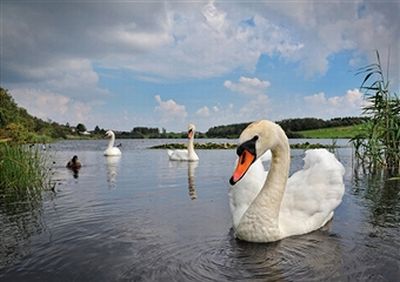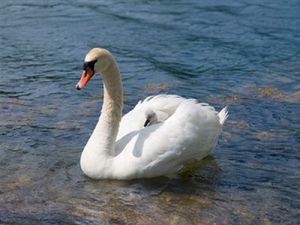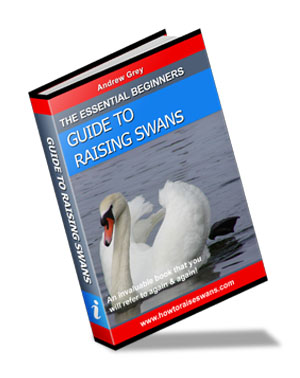How To Raise Swans – Getting Started!
Before thinking of getting yourself a pair of swans, you have to have the following first: A fresh body of water to allow them swim & drink and a large soiled area to make them frolic around. Actually, there are more requirements; however, it is already good enough to have these basic things around.
Learning how to raise swans is not that hard. You don’t even need to provide them an enclosed housing because that is not part of their habitation. If you insist, you will only create aggressive and annoying swans in the future. It becomes naturally voluntary in their part to stay in your lot only if you provide them with their safety and physical needs.
Raising swans may also mean that you have to make them more socially interactive. By the way they behave; you can already tell that it is easy for them to look for their mate, causing them to produce more baby swans every once in a while.
What usually happens is that the female swan bears the cygnets and lays the eggs. Eventually, when the eggs are hatched, both parents take care of them all. It’s not your responsibility to obstruct the family atmosphere in swans. Your responsibility comes in when the parent swans tend to leave some cygnets behind. This only means one thing: the cygnets are sick. To avoid the cygnets to get sick, you will have to maintain their place as clean as ever. If the cygnets need your attention, look after them and give them the attention and care they need.
If the cygnets have grown bigger and are old enough to leave your nesting area, you can opt to sell them. The kinds of swan vary from place to place. Therefore, it is always important to know what kind of swan you are raising.
During the process of grasping how to raise swans, it is also important to take note about their safety.
Some predators might get in and eat them in no time. It is always important to keep them away from harm when you are really serious about raising swans. Who knows, one of your neighbours might also be curious about how swans taste. You will never know.
When I started to raise swans, I made a lot of silly and painful mistakes. Then I came across this really informative book which I now use it as reference a lot. You may check it out if you are interested to raise swans correctly, find out more here.



